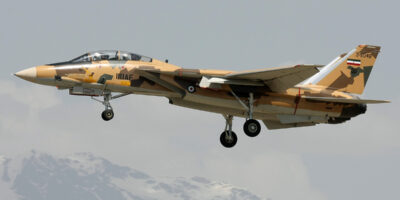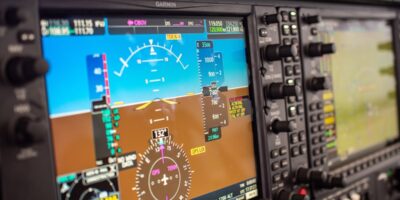I got asked at a dinner party last month, “So what exactly is AI in aviation?” and I fumbled the answer badly. Said something vague about autopilot and trailed off. Embarrassing, considering I follow this stuff pretty closely. So I went home, organized my thoughts, and decided to write the explanation I wish I’d been able to give on the spot.
At the broadest level, AI in aviation means using machine learning models, neural networks, and data analytics to solve problems and expand what’s possible across the airline and aerospace industry. That covers a lot of ground, so let me break it into pieces that actually make sense.
How AI Shows Up in Flight Operations
Probably should have led with this, because flight ops is where most people first encounter AI’s fingerprints — even if they don’t realize it. Algorithms pull data from aircraft sensors, weather stations, and navigation feeds to optimize flight paths in real time. The goal is straightforward: burn less fuel, avoid bad weather, and keep things running on schedule. A dispatcher I know says the route-optimization tools have shaved meaningful percentages off fuel burn on certain long-haul routes. That’s good for the airline’s bottom line and, frankly, good for emissions too. The systems also flag potential maintenance issues by spotting unusual patterns in sensor data before a part actually fails. I’ll get into that more below.
Maintenance and Repair — Where AI Really Shines
Predictive maintenance might be the single most impressive application of AI in this industry right now. Aircraft generate enormous amounts of telemetry data every flight — engine temps, hydraulic pressures, vibration readings, on and on. AI models sift through that data looking for subtle trends that signal a component is degrading. When they catch something, the airline can schedule the repair during planned downtime instead of dealing with a surprise breakdown that grounds the plane and wrecks the schedule. I talked to a line mechanic who said it felt strange at first, getting a work order triggered by an algorithm rather than a physical inspection finding. But he admitted the system caught things he might have missed, or at least caught them earlier.
Customer Service Gets an Upgrade
If you’ve booked a flight recently and chatted with a virtual assistant about your itinerary, you’ve interacted with aviation AI. Chatbots handle bookings, push real-time flight status updates, and answer common questions — things like baggage allowances or connecting gate information. They’re not perfect. I’ve had a few conversations with airline chatbots that went in circles. But they handle the routine stuff well enough to free up human agents for the problems that actually need a person’s judgment. And they’re available at 3 AM, which is more than I can say for most call centers.
Baggage Handling — Less Glamorous, Still Important
Nobody thinks about baggage systems until their suitcase ends up in the wrong city. AI helps here by improving how bags get sorted, routed, and tracked through the airport. Computer vision can read tags faster and more accurately than older barcode scanners. Predictive models anticipate bottlenecks in the sorting system and adjust conveyor routing before bags start piling up. Lost luggage rates have dropped industry-wide over the past decade, and smarter handling systems are part of the reason — though, honestly, better RFID tagging deserves credit too.
Security Screening
Airport security is another spot where AI is doing work most travelers never see. Advanced imaging software helps screening officers identify prohibited items in carry-on bags by automatically flagging suspicious shapes or densities on the X-ray display. This speeds up the line and reduces the chance of something getting through because a human screener had a momentary lapse during an eight-hour shift. The AI isn’t making the final call — a trained officer still does — but it acts like a second set of eyes that never gets tired.
The Benefits, Laid Out Plainly
So what does all this add up to? A few things. Safety improves because AI catches patterns in flight data that might indicate a developing problem before it becomes an incident. Operations get more efficient because scheduling, routing, and maintenance all run tighter with algorithmic help. Passengers generally have a smoother experience — fewer delays, faster answers to questions, less lost luggage. And the industry as a whole gets pushed toward innovation, with new tools and services opening up revenue streams that didn’t exist a few years ago.
It’s Not All Smooth Sailing
I’d be dishonest if I didn’t mention the challenges. Data privacy is a real concern when AI systems are collecting and analyzing passenger information. Cybersecurity gets more complicated as more systems go digital and interconnected. And there’s the job question — not everyone is comfortable with automation taking over tasks that humans used to handle, even if the AI does them more consistently. The industry also needs robust failsafes so that when an AI system hiccups, trained people can step in and take over without missing a beat. That last point is non-negotiable in aviation.
Where This Is All Heading
That’s what makes AI in aviation endearing to me as a subject — it’s not some abstract future concept, it’s already here doing real work, and it’s only going to get more involved. Fully autonomous flights are on the research horizon. Smarter air traffic management systems are being tested. Personalized passenger experiences driven by data are getting more refined each year. The technology will keep evolving, and aviation will keep absorbing it, because the potential improvements in safety and efficiency are too significant to ignore. The key, as always, is making sure the implementation is responsible, well-tested, and keeps human oversight firmly in the loop.




Leave a Reply